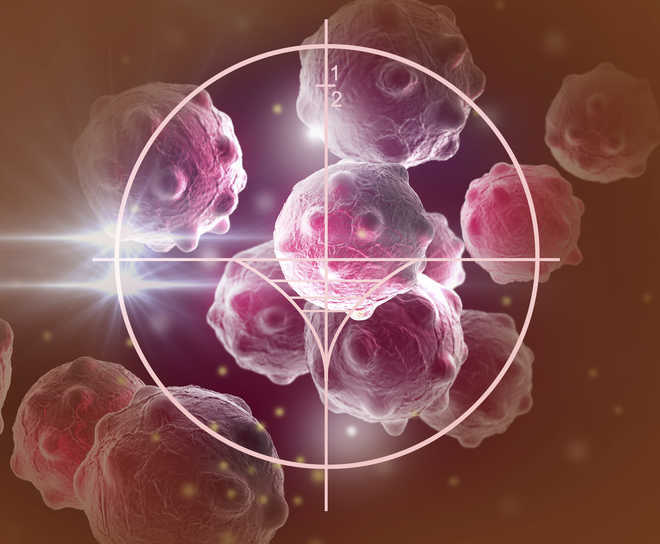
Photo for representational purpose only. Thinkstock
WASHINGTON: Chinese scientists developed a combined tumour-killing therapy that can be activated specifically at tumour sites in mouse models of cancer, which is more effective than previous similar therapies.
The study published on Friday in the journal Science Immunology described the new cancer immunotherapy that can prevent the immune system from becoming tolerant of tumours, which occurs in 30 per cent of all cancer patients, the Xinhua news agency reported.
A team led by Wang Dangge from Shanghai Institute of Materia Medica under the Chinese Academy of Sciences and Fudan University developed a common immune checkpoint inhibitor in a nanoparticle formulation, which is highly tumour-specific.
The checkpoint inhibitor is a kind of increasingly popular anti-tumour drug. It can block proteins that keep immune T cells from killing cancer. But the checkpoint inhibitor used to target those immune system-suppressing proteins like PD-1 and PD-L1 often fails to reach deep-seated or metastatic tumors.
Wang’s team combined the nanoparticles carrying PD-L1-targeting antibodies with a light-activated molecule. The molecule called photosensitiser can produce tumour-killing reactive oxygen species after encountering a protein abundant in tumours, according to the study.
In mouse models, a local near-infrared radiation that activated the photosensitiser, along with the administration of antibodies-carrying nanoparticles, promoted the infiltration of cancer cell-killing T cells into the tumour site and made the tumours more sensitive to the checkpoint blockade.
This combination also helped the nanoparticles effectively suppress tumor growth and metastasis to the lung and lymph nodes, resulting in approximately 80 per cent mouse survival over 70 days, compared to complete mouse death in 45 days in the group treated with only PD-L1 antibodies, according to the study. — IANS



























